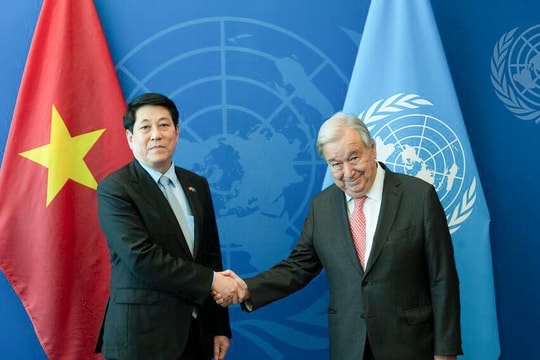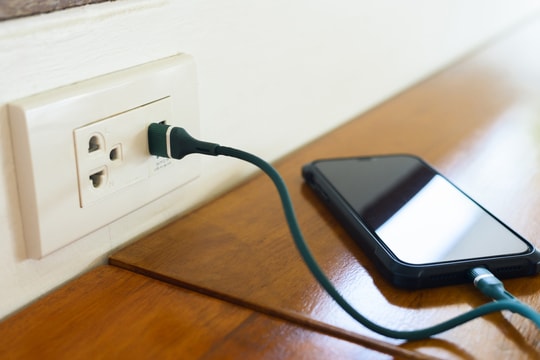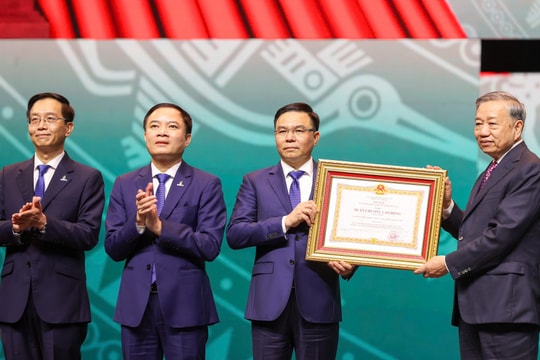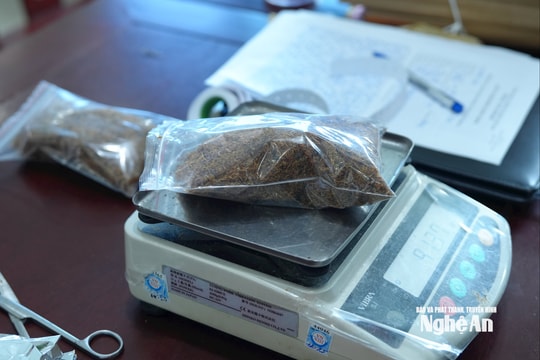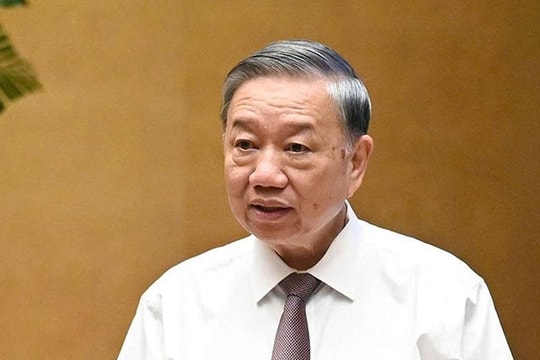With North Korea, the only way is dialogue.
(Baonghean) -On January 6, North Korea announced that it had successfully tested a thermonuclear bomb (H-bomb). To better understand this remarkable event, Nghe An Newspaper interviewed Associate Professor, PhD, Major General Le Van Cuong - Former Director of the Institute of Strategy and Science, Ministry of Public Security.
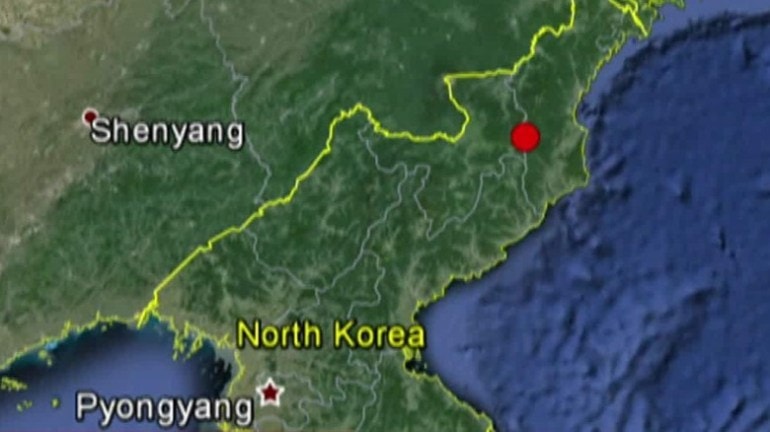 |
| Site of North Korea's nuclear test (red dot). Photo: Internet. |
PV:Major General, are you surprised by the news that North Korea announced a successful test of a thermonuclear bomb at this time?
Major General Le Van Cuong:Just 5-6 days ago, on New Year's Day 2016, North Korean leader Kim Jong-un gave a nearly 30-minute speech, calling for improved relations with South Korea and promising that Pyongyang would sincerely engage in dialogue with Seoul on the issue of unification of the Korean Peninsula. Kim Jong-un also called on South Korea to respect the inter-Korean agreement signed in August 2015, to reduce tensions and refrain from military actions by the parties that could harm the atmosphere of reconciliation.
The Supreme Leader of North Korea issued a message that could be said to be a wind of goodwill that sowed an atmosphere of peace, friendship, and openness to all the people of Northeast Asia, and people hoped that 2016 would be a year of detente on the Korean Peninsula issue. However, just a few days later, they conducted a hydrogen bomb test, so it can be said that according to common logic, public opinion was completely surprised.
But if you understand Kim Jong-un's personality and leadership style, you will not be surprised. Because from the end of 2011 until now, in the position of supreme leader of North Korea, he has often taken actions that have shocked public opinion. This is a person with an unpredictable personality, Mr. Kim can do anything, at any time, regardless of the content of the good New Year's message that has just been given.
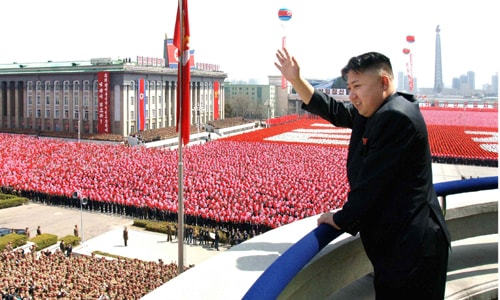 |
| Leader Kim Jong-un at a military parade in Pyongyang. Photo: AP. |
PV:Dear Major General, why has a developing country, even a poor country like the Democratic People's Republic of Korea, for decades still pursued the possession of nuclear weapons?
Major General Le Van Cuong:The pursuit of nuclear weapons is very expensive, the technology required to possess an H-bomb or thermonuclear bomb is very advanced and requires a lot of financial and technical resources. Normally, countries with limited economic potential will not pursue this. In contrast, North Korea began pursuing a nuclear program in the 1990s.
To explain this, we need to consider the North-South Korea relationship. After the 1950-1953 Korean War, the competition on the Korean Peninsula took place with the dividing line of the 38th parallel North between two countries, two opposing political systems. After more than 50 years, it is clear that in terms of economy or diplomacy, North Korea is far behind South Korea. North Korea believes that if it does not have nuclear weapons, it will be disrespected by major countries such as South Korea, Japan, the United States, etc. North Koreans are inherently honorable and cannot bear to be looked down upon by other countries. Therefore, for them, the only way is to find a way to possess nuclear weapons. In other words, personal honor and collective honor are the reasons why the North Korean leader pursues the nuclear program.
PV:In your opinion, Major General, why did North Korea test an H-bomb at this time and what was their purpose?
Major General Le Van Cuong:North Korea often has unusual actions such as firing short-range and medium-range missiles, launching satellites, testing atomic bombs, etc. These actions are carefully calculated and not spontaneous. There is public opinion that this time North Korea conducted an H-bomb test as a birthday celebration for the Supreme Leader, but I think that is not true.
We should remember that whenever the US, Japan, South Korea and the international community in general seem to be neglecting the North Korean issue, Pyongyang will take action, such as testing missiles or nuclear bombs, to attract the international community's attention. Perhaps, in late 2015 and early 2016, a series of diplomatic activities took place that made North Korea uncomfortable, such as the trilateral summit between South Korea, China and Japan, China improving relations with South Korea, Japan strengthening relations with the US, India, Australia, etc. Other countries such as Russia and the US are also preoccupied with the Syrian conflict and the fight against the self-proclaimed Islamic State (IS). Does North Korea feel neglected and "abandoned"?
Every time they do this, they create an “incident”, and this time they tested an atomic bomb. Of course, the reaction of the major powers was immediate, as the US, Japan, South Korea and China were forced to talk to each other, and inadvertently became the focus of world attention.
Another intention of North Korea is to create more capital to put pressure on its opponents and raise Pyongyang's position in bilateral and multilateral negotiations, especially the Six-Party Talks with South Korea, China, Japan, Russia and the United States.
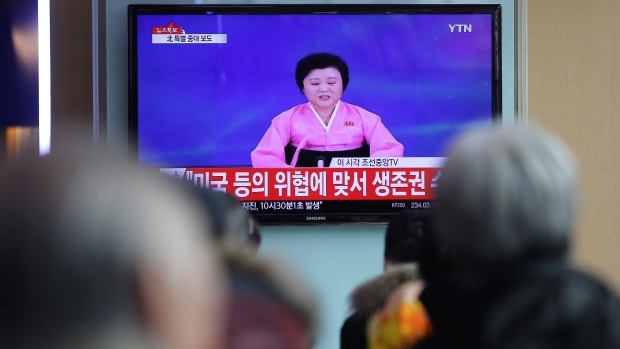 |
| South Koreans watch news about North Korea's announcement of a successful H-bomb test. Photo: Internet. |
PV:What impact does the recent thermonuclear bomb test have on Northeast Asian security in particular and world security in general, Major General?
Major General Le Van Cuong:In fact, the impact of North Korea's H-bomb test on global security is not large, mainly heating up the atmosphere in Northeast Asia. Two countries that are often passive in responding to North Korea, Japan and South Korea, continue to be put in a difficult situation when Pyongyang announced that it had successfully tested a thermonuclear bomb - a special high technology. The security atmosphere in Northeast Asia heated up, creating international public opinion about the situation on the Korean Peninsula. In that context, Seoul and Tokyo must certainly have closer cooperation, and cooperate with Washington to deal with Pyongyang.
North Korea’s H-bomb test will inadvertently promote closer US-Japan-South Korea relations, which will also have unpredictable consequences for China. When the three countries get closer, Beijing will face many disadvantages, in terms of politics, foreign affairs and security, all of which will fall into a dilemma. In other words, although the countries still need to cooperate with China on this issue, their alliance will cause more trouble than benefit Beijing - North Korea’s almost only friend. The risk of an imbalance of power in Northeast Asia and tilting the balance towards the US is clearly a prospect that China does not want.
PV:So, what should the international community do in the current context, Major General?
Major General Le Van Cuong:North Korea's hydrogen bomb test is a violation of several UN resolutions. But for North Korea, I think the international community has no other way to respond than dialogue. After this event, it is expected that the Six-Party Talks will be restored. Most likely, the negotiations will have the participation of a seventh party, the United Nations. At the same time, we should not exclude but should take advantage of bilateral dialogue between North Korea and South Korea, trilateral and quadrilateral dialogue between North Korea and South Korea, Japan, China, etc., which are also expected to bring more direct results.
In short, the international community currently has no more practical solution than expanding bilateral and multilateral dialogue with North Korea, while at the same time supporting this country in humanitarian and economic aspects, etc., to ease the atmosphere on the Korean Peninsula.
Thu Giang
(Perform)
| RELATED NEWS |
|---|

